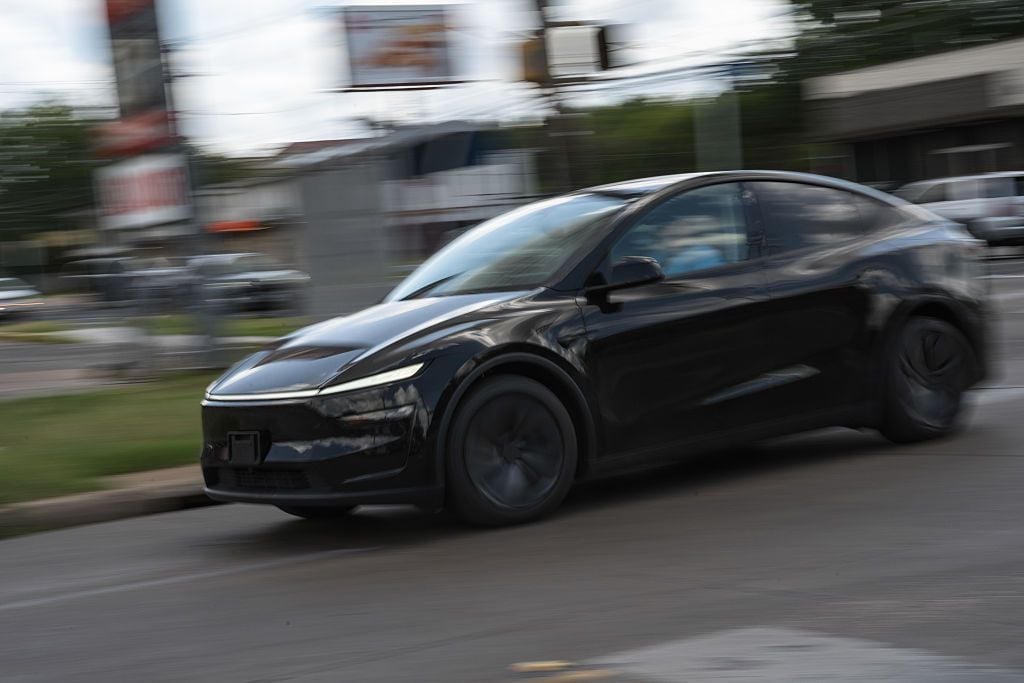Tesla says a car delivered itself to a customer for the first time
The Tesla made a 30-minute drive from the company's Austin Gigafactory to a buyer's apartment

Eli Hartman/Bloomberg via Getty Images
Tesla $TSLA said it made a driverless delivery of a new car to a customer on Friday, marking a first for Elon Musk’s automaker.
The company said a Model Y SUV drove itself from Tesla’s Gigafactory in Austin to a nearby apartment building. In a post on X $TWTR, Tesla said the approximately 30-minute drive included traversing city driving, plus parking lots and highways. The video that accompanied the post showed the car driving without any people in the driver or passenger seat.
Related Content
When the car arrived, the buyer was standing at the curb waiting, along with a group of Tesla employees. As CNBC pointed out, the curb where the car stopped was painted red, meaning it was a no-stop fire lane.
Tesla did not specify what version of its hardware or software the car was using. According to the Model Y owners’ manual posted on the automaker’s website, owners must keep their hands on the wheel and be ready to take over steering or braking at any time when using Tesla’s Full Self-Driving (Supervised) mode, which is Tesla’s most advanced, partially automated driving system publicly available.
On Friday, Musk wrote on X: “The first fully autonomous delivery of a Tesla Model Y from factory to a customer home across town, including highways, was just completed a day ahead of schedule!! Congratulations to the @Tesla_AI teams, both software & AI chip design!”
The stunt comes as Tesla faces cratering sales worldwide. Global vehicle deliveries fell to 336,681 units in the first quarter of 2025, down 13% year-over-year and Tesla’s lowest total in nearly three years. In California, Tesla’s largest U.S. market, registrations dropped 15.1% in the quarter. Recent data from the European Automobile Manufacturers Association showed that Tesla’s vehicle registrations in Europe fell for the fifth consecutive month in May, down nearly 28% year-over-year — even as the broader EV market across the E.U. surged more than 27%.
Meanwhile, Tesla is facing increased pressure from American EV automakers like Rivian $RIVN and a number firms abroad. Chinese companies BYD and SAIC have steadily gained market share in Europe, helped by lower prices and expanding dealer networks. Chinese brands accounted for nearly 6% of EVs sold in Europe in May, selling roughly 66,000 vehicles — up from just 3.8% a year earlier. In Germany, SAIC’s MG brand outsold Tesla by more than two to one.
—Shannon Carroll and Catherine Baab contributed to this article.
